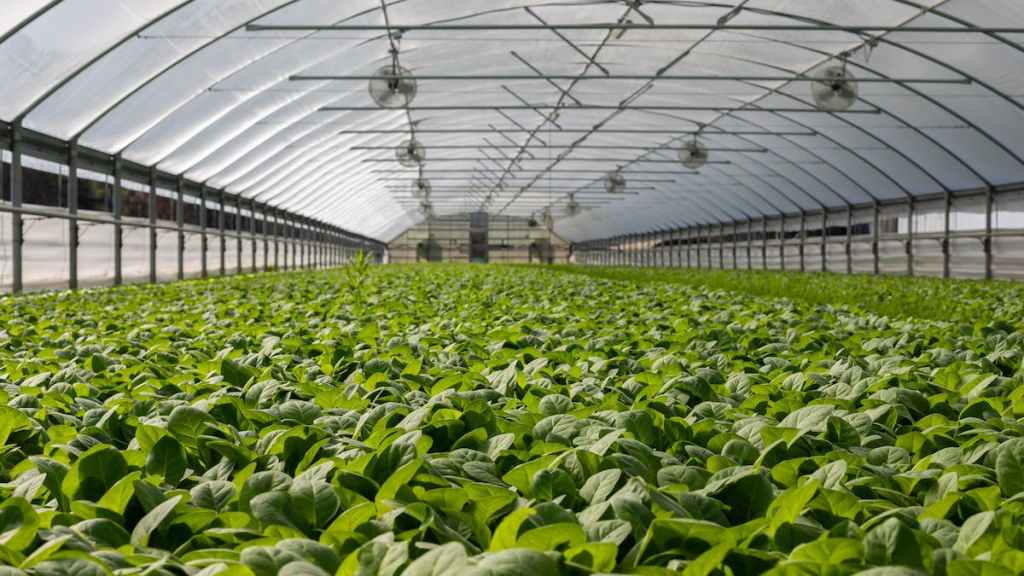– By Ishit Pilani
In recent times, the organic food sector has undergone a remarkable metamorphosis, propelled by the amalgamation of technology and traditional farming practices. As health-conscious consumers in India and globally, increasingly gravitate towards sustainable choices, technology is taking center stage in reshaping the organic food sector.
India’s organic food market has witnessed exponential growth after the pandemic. According to the 2022 survey conducted in 187 countries practicing organic agriculture by the international resource data from the Research Institute of Organic Agriculture (FiBL) and International Federation of Organic Agriculture Movements (IFOAM), organic food in India is cultivated in 2.6 Mn hectares, fifth largest in the world. The report further revealed that the share of land used for organic farming in total agriculture land is 1.5%, and in the last ten years, India increased its organic agriculture land under cultivation by 145.1%. The Economic Survey 2022-2023 mentions that India has 4.43 Mn organic farmers, the highest in the world.
Evolving food preferences, influenced by rising per capita income in developing nations, occupational shifts, and global interconnections, pose challenges amid a growing population. Conventional agricultural techniques from the 20th century, while enhancing productivity, encounter limitations and environmental threats. Dependency on chemical fertilisers and pesticides hampers global food production. This is where technology is stepping in.
Technological advancements in the agriculture sector are ensuring advancements to ensure food security in the face of changing demographics and environmental concerns. Here’s how –
Precision Agriculture: The advent of precision agriculture, powered by technology, is heralding a new era for organic farming in India. As per World Economic Forum The global food security challenge is straightforward: by 2050, the world must feed two billion more people, an increase of a quarter from today’s global population. The demand for food will be 56% greater than it was in 2010. In addition to this, globally, the sector accounts for 30% of greenhouse gas emissions and 70% of freshwater withdrawals so attention has to be paid to energy and water use in farming. Therefore, safeguarding food security while minimising environmental impact is a must which can be achieved with precision farming. Farmers are swiftly embracing sensor technologies, drones, and data analytics to monitor and manage their crops effectively. Sensor-based technologies, for instance, provide real-time data on soil health, moisture levels, and nutrient content. This data-driven approach facilitates precise irrigation and targeted application of organic fertilisers, curbing waste and optimising resource utilisation.
Blockchain Technology:
The perennial challenge of ensuring the authenticity of organic products finds a formidable solution in blockchain technology. According to a Deloitte study, the implementation of blockchain in the supply chain can slash food fraud, instilling greater confidence in the organic label among consumers.
Blockchain creates an immutable and transparent ledger for every transaction in the supply chain, establishing the verifiability of organic claims. This not only fosters consumer trust but also empowers organic farmers to secure fair prices for their products.
E-Commerce and Direct-to-Consumer Models:
The rapidly growing e-commerce platforms have injected fresh vigor into the organic food market in India. The amalgamation of online shopping convenience with the escalating demand for organic products is reshaping how consumers access their groceries.
Direct-to-consumer models, facilitated by technology, empower organic farmers to reach a wider audience without intermediaries. This not only ensures a fair share of profits for farmers but also provides consumers with convenient access to a diverse array of organic products.
Data-Driven Decision Making
The utilisation of data analytics is arming organic farmers with the tools for informed decision-making and improved crop management. By harnessing data on weather patterns, market trends, and historical crop performance, organic farmers can optimize planting schedules, minimise waste, and respond proactively to changing conditions. This data-driven approach not only enhances productivity but also contributes significantly to the overall sustainability of organic farming practices.
Delving into the specific context of India, several unique facets highlight the symbiosis of technology and organic farming in India:
1. AgriTech Startups: The proliferation of AgriTech startups is providing Indian organic farmers with digital tools to enhance crop monitoring, supply chain optimization, and market access.
2. Mobile Technology for Farmer Outreach: In a country where a substantial population is engaged in agriculture, mobile technology is disseminating real-time weather updates, market prices, and best organic farming practices directly to farmers, bolstering their knowledge base.
3. Organic Certification Platforms: Platforms like Jaivik Bharat are streamlining the organic certification process in India, reducing bureaucratic hurdles, and ensuring the credibility of organic products.
4. Solar-Powered Solutions: In addressing power supply challenges in remote areas, India is integrating solar-powered solutions such as pumps and cold storage, aligning with the sustainable ethos of organic farming.
5. Community-Supported Agriculture (CSA) Platforms: The rising popularity of CSA platforms connects Indian consumers directly with local organic farmers, facilitated by technology, fostering a robust farmer-consumer relationship.
6. Artificial Intelligence in Pest Management: Given the significance of pest management, AI-based solutions in India are emerging to predict and manage pest outbreaks, reducing crop losses and promoting sustainable pest control practices.
As India’s organic food sector undergoes this tech-driven metamorphosis, it is evident that technology is not just a tool but a catalyst for positive change. The unique dynamics of India’s agricultural landscape, coupled with the transformative power of technology, pave the way for a more sustainable and resilient future for the organic food industry in the country.
(Ishit Pilani is the Co-Founder of Organic Roots.)
(Disclaimer: Views expressed are personal and do not reflect the official position or policy of Financial Express Online. Reproducing this content without permission is prohibited.)


